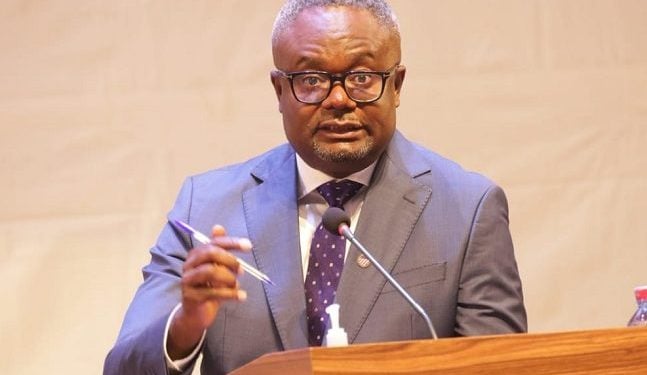Kofi Akpaloo, the presidential candidate for the Liberal Party of Ghana (LPG), has publicly urged Organised Labour to reconsider their planned indefinite strike set to commence on October 10, 2024. This announcement follows Organised Labour’s declaration of discontent with the government’s inaction regarding illegal mining activities, commonly referred to as galamsey. After failing to meet their demands, which include a complete ban on illegal mining, the group expressed frustration over the government’s inadequate measures to combat the environmental destruction caused by galamsey. The organization has called for significant actions such as declaring a state of emergency, revoking Legislative Instrument (L.I.) 2462, and deploying military personnel to critical regions suffering from the adverse effects of illegal mining.
In an interview with Citi News, Akpaloo emphasized the inopportune timing of the proposed strike, given that national elections are on the horizon. He urged the labour unions to engage in negotiations with governmental authorities instead of resorting to radical measures, arguing that the current political climate should encourage dialogue rather than conflict. He suggested that initiating a strike two months before elections could be perceived as an attempt to destabilize the government rather than genuinely address the urgent issues related to galamsey. Akpaloo expressed a desire to ascend to the presidency through constructive and positive engagement, stating that he prefers to govern with a clear conscience and a commitment to peace, rather than benefiting from another’s misfortune.
The urgency expressed by Organised Labour reflects a deep-seated frustration with the government’s ability to tackle the galamsey crisis effectively. Their stance has been bolstered by ongoing environmental damage that not only affects local ecosystems but also threatens the livelihoods of communities dependent on natural resources. The illegal mining operations have often been linked to erosion, pollution, and diminished water quality, which have sparked public outcry and calls for immediate government intervention. While Akpaloo acknowledges the legitimacy of these concerns, he argues that immediate action, such as a strike, could derail the efforts to create a comprehensive and sustainable resolution.
Akpaloo contends that the strike may lead to temporary governmental measures without addressing the root causes of the galamsey crisis. The uncertainty surrounding the strike could result in the government implementing hasty solutions that may not provide long-lasting relief. By advocating for patience and dialogue, Akpaloo emphasizes the importance of a collaborative approach in dealing with complex issues such as illegal mining. He believes that a thorough discourse with the government could yield more effective solutions that would ensure both environmental protection and the welfare of affected communities.
Furthermore, Akpaloo’s views raise intriguing questions about how political motives interact with labor actions in Ghana. He suggests that the timing of the strike might be politically charged and could be interpreted as an agency for undermining the government’s position just before elections. Such political dynamics could divert attention from the critical environmental issues at hand and prioritize political gains over genuine developmental efforts. By calling for a temporary suspension of the planned strike, Akpaloo seeks to refocus the discussion on practical solutions and long-term strategies for addressing galamsey, rather than getting caught in an electoral struggle.
In conclusion, Kofi Akpaloo’s demand for Organised Labour to postpone their imminent strike highlights the complex interplay between environmental issues and political processes in Ghana. The upcoming elections introduce a layer of political sensitivity that could complicate meaningful dialogue about the galamsey crisis. By advocating for discussions instead of drastic actions, Akpaloo emphasizes the importance of collective problem-solving and the necessity of creating a cooperative atmosphere conducive to genuine progress. The real challenge lies in balancing the urgent need to protect the environment with the political realities that shape governance in Ghana. As the situation unfolds, it remains critical for all stakeholders to prioritize dialogue, collaboration, and shared responsibility to tackle the pressing issues surrounding illegal mining and its impacts on society.


